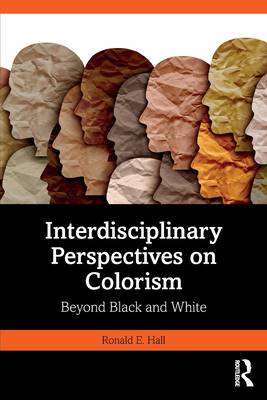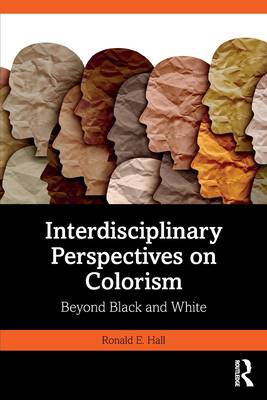
- Retrait gratuit dans votre magasin Club
- 7.000.000 titres dans notre catalogue
- Payer en toute sécurité
- Toujours un magasin près de chez vous
- Retrait gratuit dans votre magasin Club
- 7.000.000 titres dans notre catalogue
- Payer en toute sécurité
- Toujours un magasin près de chez vous
Interdisciplinary Perspectives on Colorism
Beyond Black and White
Ronald E HallDescription
This timely and unique book explores the concept of colorism, which is discrimination based on the color of a person's skin, in a world where arguably light skin is privileged over dark, and one's wealth, health, and opportunities are impacted by skin color, sometimes irrespective of one's racial background.
In the context of our multi-cultural and increasingly global society, and the historical backdrop of slavery, the text takes a unique approach by moving from personal anecdotes to adopting a scientific perspective grounded in empirical evidence. Hall explores how skin color is a more effective framework for examining prejudice and discrimination, as racial identities become increasingly mixed due to inter-racial unions and immigration. He argues that racism as discrimination by race is contrived, polarizing, and non-quantifiable, and that it is often skin color that is used to "identify" race, often inaccurately. With skin color being a visual and physical characteristic, with race-based prejudices attached to it, the author shows how skin color can be a loaded identifier of value and identity. In a world where the objective measure of skin color crosses racial boundaries and where race will become increasingly indiscernible over time, the ultimate aim of this book is to prepare for the social future of mankind that has already begun to take shape.
Split into three parts, examining historical, contemporary, and potential future perspectives on colorism, this is fascinating reading for students and academics in psychology, social work, education, criminal justice, and other social sciences. The text will also be useful for providing validation for including colorism into the public domain.
Spécifications
Parties prenantes
- Auteur(s) :
- Editeur:
Contenu
- Nombre de pages :
- 160
- Langue:
- Anglais
Caractéristiques
- EAN:
- 9781032299389
- Date de parution :
- 22-07-22
- Format:
- Livre broché
- Format numérique:
- Trade paperback (VS)
- Dimensions :
- 156 mm x 234 mm
- Poids :
- 254 g







